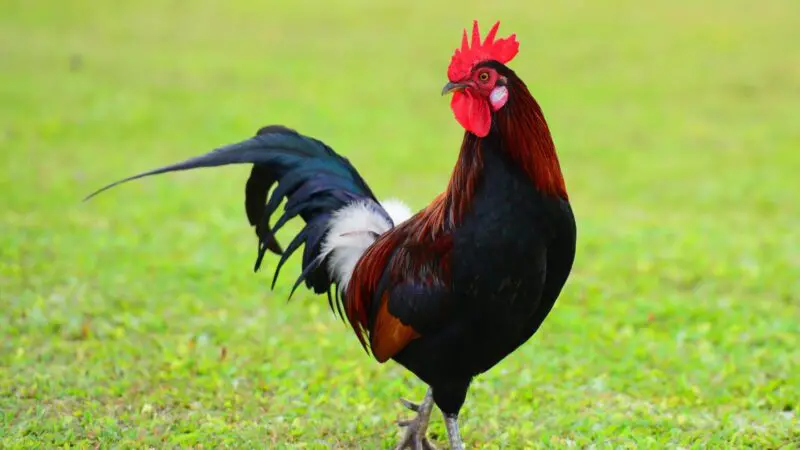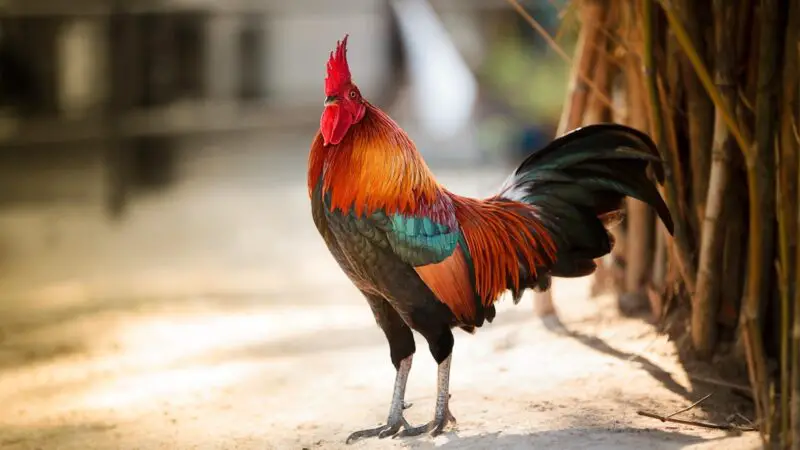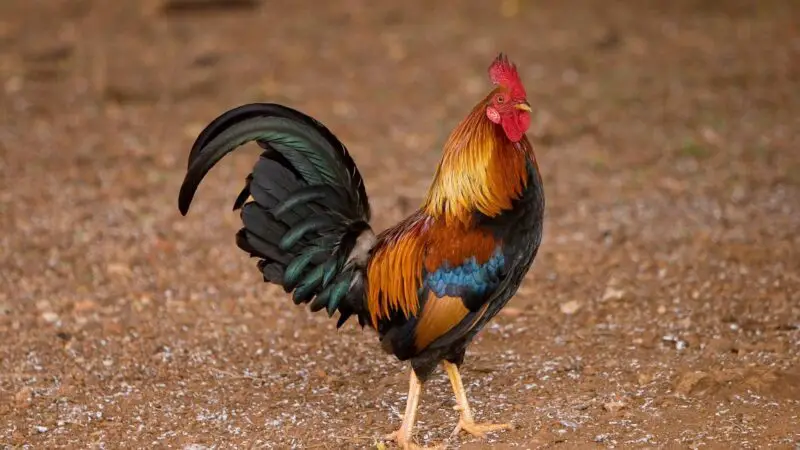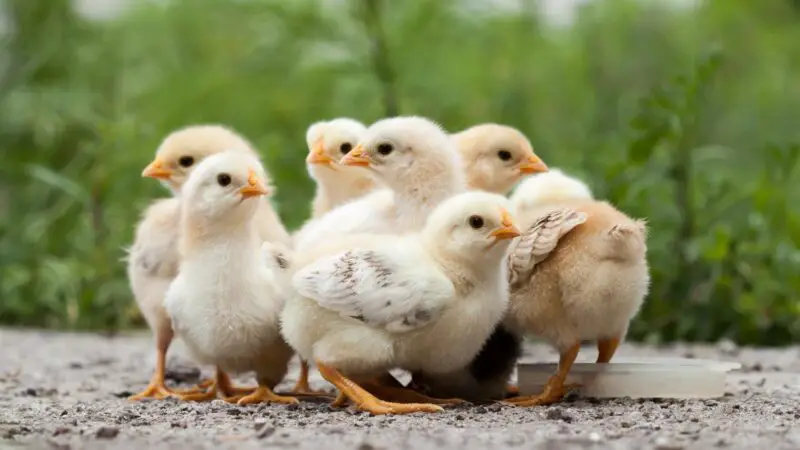Intestinal parasites are a common problem in both backyard and commercial poultry farms. They can cause problems such as weight loss, diarrhea, anemia, and a decline in egg production among chickens.
Deworming and treatment are important to ensure and maintain the health of your chickens and prevent the emergence of intestinal parasites.
Safeguard is a known and proven effective dewormer that can be administered daily. It must be mixed well in your chicken’s drinking water so they can consume it. Dosage is specified as 0.005 milliliters of Safe-Guard Aquasol per 1-kilogram chicken body weight in a day, for 5 consecutive days. Important: Always read and follow instructions provided by the manufacturer as concentration and dosage can change!
In this article, you will learn more about the symptoms of worms on chickens and how to deworm them.
When Should I Check My Chickens for Worms?

You can check your chicken for worms and approach to deworm them with the following approaches:
- Deworm as soon as you see the first symptoms of worm infestation among your chickens.
- Deworm is on a routine schedule of at least 2 times a year. It should be once in the fall right before winter starts, and the chickens are mostly inside, and once before spring starts. You can do it more than 2 times as a preventive measure, regardless if your chickens have worms or not.
- Deworm only when there’s a high concentration of worms in your chickens. You can consult your veterinarian or run tests in diagnostic labs to check whether your chickens have high worm count.
Do You Need to Deworm Chickens Regularly?
It is recommended to deworm chickens regularly as it will work as a preventive measure against infestations.
What Are the Symptoms of Worms in Chickens?
General clinical signs will include reduced feed intake, diarrhea, weight loss or gain and even decreased egg production among hens. However, it varies depending on the internal parasite that’s infecting your chickens.
Here are the various types of worms, their appearance, how they’re clinically diagnosed, and their associated symptoms:
| Internal Parasite | Appearance | Diagnosis | Symptoms |
| Roundworms | Long and yellowish-white in color | Inspection of intestinal lining and necropsy of suspect birds | Droopiness, diarrhea, weight loss |
| Cecal Worms | Short worms | Inspection of feces, finding worms in the ceca or its eggs, and necropsy of suspect birds | Weakness, unthriftiness, weight loss, loss of feed efficiency |
| Gapeworms | Red, forked-shaped worms | Inspection of the bird’s trachea and finding distinct red worms in them | Gasping, open-mouthed or labored breathing, coughing, grunting |
| Capillary Worms | Hair-like worms | Inspection by finding large numbers of worms through necropsy or worm eggs in the bird’s feces | Inflammation of joints or oral cavity, weight loss, beak droopiness, weight loss, diarrhea, mottled egg yolks |
| Tapeworms | Long segmented, flat, and white worms | Inspection of tapeworm segments in the intestine or feces | Unthriftiness, weakness, delayed growth |
Can You Use Safeguard on Chickens?
You can use Safeguard on chickens. However, it’s important to follow the specified instructions on the product label and consult your veterinarian for further assistance before using it on your chickens.
Is Fenbendazole Safe for Chickens?
Fenbendazole is safe to use for chickens. It is the active ingredient used in Safe-Guard Aquasol, and it works to combat adult-stage roundworms and adult-stage cecal worms in chickens.
How Do You Mix Fenbendazole for Chickens?
- For one-day fenbendazole treatments, dissolve 1 ounce of the fenbendazole product (Safe-Guard Aquasol or Panacur) in 1 cup of water for every 15 to 20 pounds of feed.
- For three-day fenbendazole treatments, dissolve 1.2 ounces of fenbendazole product (Safe-Guard Aquasol or Panacur) for every 100 pounds of feed, every day for 3 days.
Important: Always read and follow instructions provided by the manufacturer as concentration and dosage can change!
What Does Safe-Guard Do for Chickens?

It is used for the treatment and control of adult roundworms in both broiler and replacement chickens that are grown to become breeding chickens and for the treatment and control of adult roundworms and cecal worms in breeding chickens.
It is specifically indicated by the manufacturer that Safe-Guard Aquasol should not be used for laying hens and replacement chickens that are groomed to become laying hens.
Where to Buy Safe-Guard for Your Chickens?
You can purchase it at your local supermarkets, grocery stores, and pet stores.
How Can I Tell if My Chicken Has Worms?

Look for telltale symptoms such as reduced feed intake, diarrhea, weight loss or gain, depression, and even decreased egg production among hens.
It’s best, however, if you take your chickens to a veterinarian so you could identify what worms they have and know which treatment is the most appropriate to use.
Is There an Egg Withdrawal Period After Using Safeguard?
According to Merck Animal Health, the manufacturer of Safe-Guard Aquasol, there is no egg withdrawal period required when using the product as a treatment for chickens.
The withdrawal period refers to the time you need to take before consuming eggs produced by hens that are treated with the product, just in case the active ingredient has any effect on egg taste, safety, and quality.
Can You Use Safeguard With Baby Chicks?

You can use Safeguard with baby chicks. Worms can infect the feces and intestinal tracts of older chickens and will subsequently infect their chicks. In this case, you would have to deworm your older chickens first before deworming the baby chicks.
How Do You Deworm Chickens With Safeguard?
Safe-Guard Aquasol requires oral administration to chickens by mixing it with their water first before letting them consume it.
The recommended dose calculation is 1 milligram of fenbendazole per 1-kilogram chicken body weight. This is equivalent to 0.005 milliliters of Safe-Guard Aquasol per 1-kilogram chicken body weight in a day for 5 consecutive days.
The following formula should be used to estimate the dose:
Total estimated body weight of the chickens in kilograms x 0.005 mL = amount of Safe-Guard Aquasol to use in milliliters in a day
Here is an example of calculations depending on the total body weight of the chickens to be treated:
| Total Body Weight of Chickens to be Dewormed | Amount of Safe-guard Aquasol per Day | Total Amount of Safe-Guard Aquasol for 5 Days |
| 5,000 kg | 25 mL | 125 mL |
| 10,000 kg | 50 mL | 250 mL |
| 50,000 kg | 250 mL | 1,250 mL |
| 100,000 kg | 500 mL | 2,500 mL |
| 300,000 kg | 1,500 mL | 7,500 mL |
Frequently Asked Questions
What Age Should I Deworm My Chickens?
You can start deworming chicks when they reach 3 months old or as soon as you see worms in their feces. This way, you’ll lessen the amount of deworming stress they undergo.
Can You Eat Eggs if Chickens Have Worms?
You cannot eat eggs if chickens have worms. Eggs that have worms will also potentially infect humans and cause illnesses. Chickens should properly be dewormed before you can eat their eggs again.
Is Pumpkin a Good Dewormer for Chickens?
There is no scientific evidence backing the claim that pumpkin or pumpkin seeds are effective wormers for chickens. It’s best to use industry-produced deworming products instead, such as Safe-Guard Aquasol.
What Is the Best Natural Dewormer for Chickens?
The following are organic dewormers for chickens that are based on anecdotal information and have not been fully investigated in a research setting:
- Adding garlic to the chickens’ drinking water is said to control intestinal worm infestations. It can also be placed around the chicken coop to ward off worms.
- Wormwood, a medium-sized bush, is believed to help get rid of both internal and external parasites by letting chickens peck the leaves or brush against it.
- Citronella, or lemon grass, have aromatic leaves that can be placed strategically around the chicken coop to ward off parasites.
- Peppermint also has strongly-scented leaves that will reduce the appearance of parasites by placing them around the coop area or allowing chickens to eat and walk all over the leaves.
- Other plants that can be used are dandelions, sage, and yarrow, as it is believed that they have medicinal properties that can help relieve gastrointestinal diseases.
Safeguard is safe to use for controlling and treating intestinal worms in chickens. Chickens should be regularly dewormed as early as 3 months old and as often as 2 or more times in a year.
Common symptoms of worm infections in chickens are reduced feed intake, diarrhea, weight loss or gain, depression, and even decreased egg production.
Contact your veterinarian for further assistance in the control and treatment of worms.
